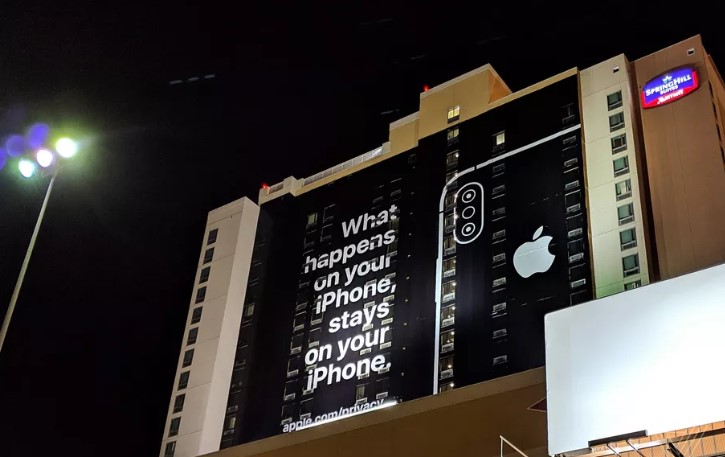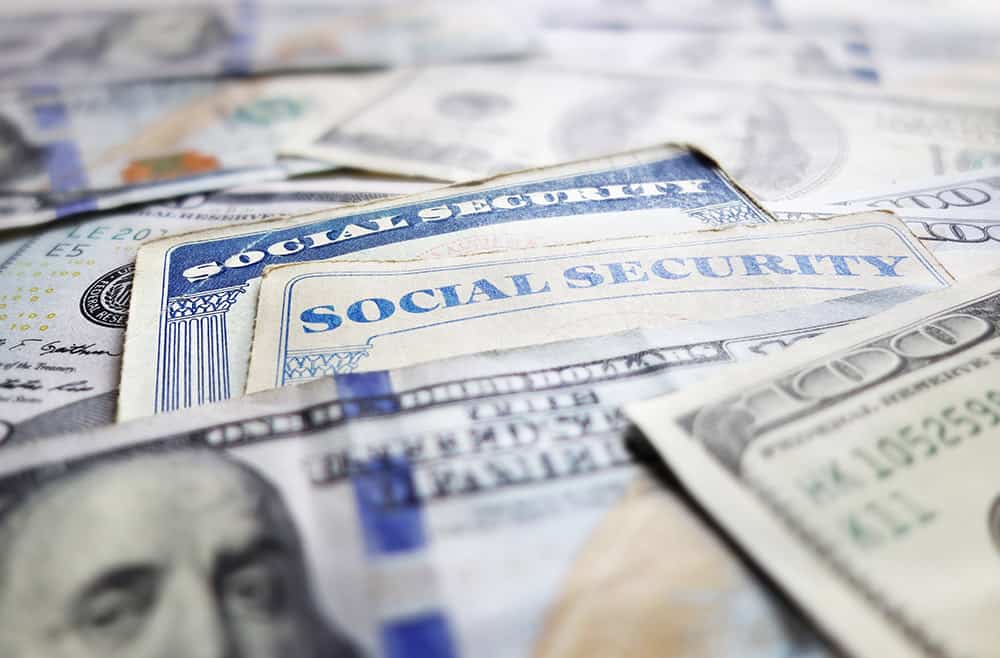
There’s a giant ad on the side of a building in Las Vegas, making a wordplay on the classic “what happens in Vegas stays in Vegas” line. Nothing unusual about that, except it’s been set up by Apple just in time for the Consumer Electronics Show’s arrival in town, an event that the iPhone maker traditionally pretends isn’t even happening.
Taking over the side of a hotel strategically positioned right next to the Las Vegas Convention Center (LVCC), Apple’s multi-story ad keeps things simple: “What happens on your iPhone, stays on your iPhone.” Below that resides a link to apple.com/privacy, where the company expounds at greater length about the security of things like Apple Pay, Face ID, and the health data collected by the Apple Watch. Every person attending CES this coming week will inevitably see this stark white-on-black ad.
In spite of never having a formal presence at CES, Apple has always been the invisible elephant in the convention halls, with device and accessory makers committing time and resources to building out the Apple ecosystem. In recent times, however, it’s been Amazon’s Alexa and Google’s Assistant that have taken over primacy at CES, and now Apple is striking back with an expertly judged troll ad.
Taking on precisely the opposite color scheme, black text on a white background, is Google with its new, massively expanded presence outside the LVCC. One corner of the LVCC parking lot is entirely taken up by Google showing off its Assistant wares. The local monorail, which passes by the CES venue, is also stickered up with Google banners, and additional “Hey Google” branding can be seen all across the LVCC. Like last year, Google’s investing heavily in promoting the Assistant as a strong Alexa competitor and the focal point of CES. It’s just that this year Apple has something snarky to say about it.
Apple isn’t wrong to tout its privacy advantage. Amazon’s Alexa has had embarrassing failures on this front: first by recording a private conversation and sending it to a different user, and then by mistakenly sending a user 1,700 voice recordings from another. As to Google Assistant and Android — the primary / only rival to the iPhone — there have been numerous privacy infractions from Android device makers surreptitiously tracking user information (hello, OnePlus and Blu), and Google’s own business model is predicated on exploiting user data for commercial gain. Apple can afford to be more noble because it sells hardware rather than ads.
Though Apple’s privacy may be superior to its rivals, it’s not without fault. iPhone users in China, for instance, are far less protected from state snooping than their US counterparts. And Apple’s tardiness in implementing two-factor authentication likely contributed to high-profile iCloud accounts being compromised in the infamous Celebgate photo leak. If Apple wants to live up to the full meaning of the words it has emblazoned on the side of a building this week, it ought to ensure its privacy protections are impenetrable and apply with equal strength everywhere across the world. Otherwise, this might all look a bit hypocritical.
























